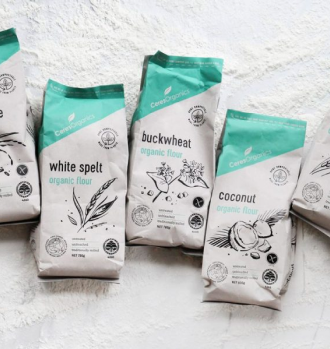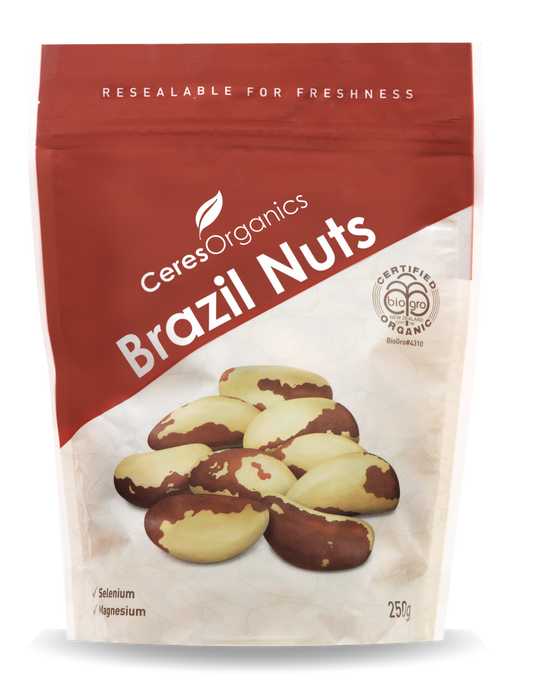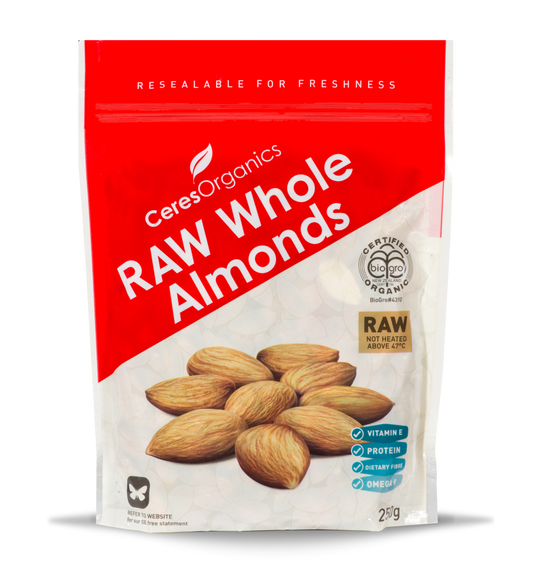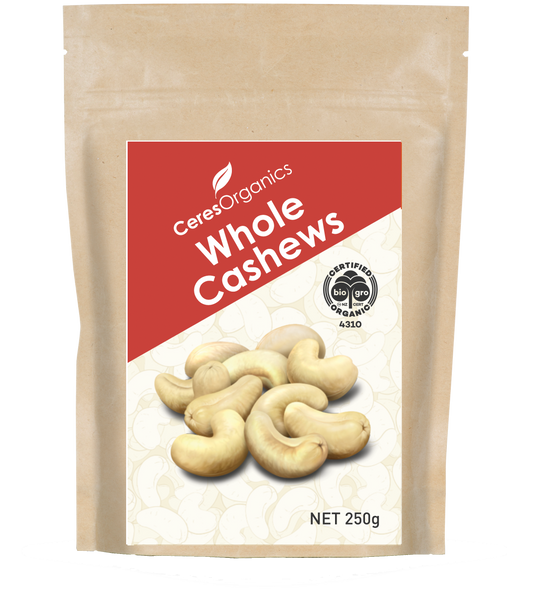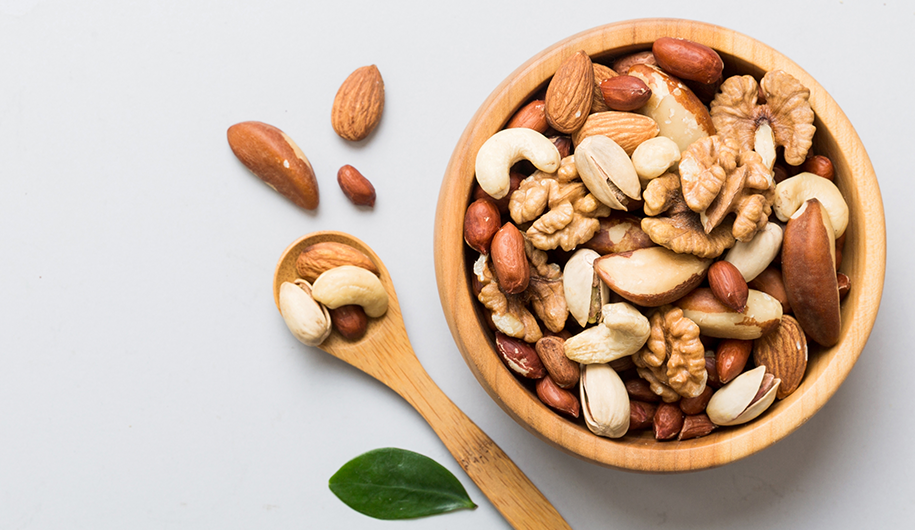
Why you should choose organic nuts
We all know nuts are great for your health. These little powerhouses are not only delicious, they’re packed with protein, fibre, omega 6 and 3 fats, vitamin E and minerals. It’s true that eating nuts can have huge health benefits, but if you’re choosing conventionally grown nuts you are also increasing your chemical exposure. Nuts grown this way are heavily sprayed with pesticides when they’re picked and shelled, which are then absorbed into your body. Organic nuts on the other hand, are spray free. So there is a payoff between choosing organic and non-organic nuts.
The potential hidden dangers of nuts
In spite of their nutritional benefits, nuts grown using conventional methods can also be harmful, because they are sprayed with pesticides to prevent them from being eaten by pests and extend their lifespan. Because of their high oil content, all nuts easily absorb pesticides that end up in our body when we eat them. While nuts aren’t always sprayed when they are growing, they are typically covered in pesticides and fungicides once they are picked and shelled. So unless you’re willing to shell all of your nuts yourself, opting for organic is far healthier.
One of the most concerning toxins associated with peanuts is a mould called aflatoxin, which requires fungicide to be killed. Because they are legumes, not nuts, peanuts have a soft, permeable shell and are particularly susceptible to contamination. These nuts also grow underground, making it easy for mould to grow on them if they are in a warm, humid environment. When you eat non-organic peanuts and nut butter, these chemicals can be absorbed into your body.
What makes nuts healthy?
First, let’s look more closely at some of the benefits of eating nuts. When you eat just a few nuts five or more times a week, you’re doing great things for your body. Packed with goodness, here are some benefits of making them part of your regular diet:
- Monounsaturated, polyunsaturated and omega-3 fats - these are the good fats that keep the cardiovascular system healthy.
- Fibre - important for bowel health, assists with blood sugar control and lowering cholesterol levels.
- Antioxidants and phytochemicals, such as vitamin E - these boost immunity and may protect against chronic diseases like heart disease.
- Folate - important during times of rapid growth like adolescence and pregnancy, and may offer added protection for the heart.
- Arginine - an amino acid that helps to keep blood vessels relaxed.
- Copper, magnesium, zinc and selenium - minerals that have many roles in the body and are vital for good health.
Choosing organic
While we know choosing organic will lower your exposure to chemicals, it also has an impact on the environment. Take almonds for example. Did you know that around 80% of the world's supply of almonds are grown in California? The central valley in California is under the threat of environmental degradation because of the intensive agriculture seen in Almond farming. Bees are transported in for a few weeks to pollinate the almond crop and when exposed to chemicals that are sprayed on the trees, also affect bees.
At Ceres Organics, we had been actively searching for a southern hemisphere supplier of almonds, but no farm met our stringent requirements. However, we did find a farm in Chile, where we convinced the farmer to transition to organic. Organic farming is no easy task, it’s risky, labour intensive and takes about two years to become fully certified. We work in partnership with this farm by helping them minimise this risk by committing to buying their harvest as well as assisting other buyers to purchase their almonds!
Next time, when you choose a nut butter, it’s more than price. By choosing organic, not only is it better for you, it’s better for the farmers and mother nature.



